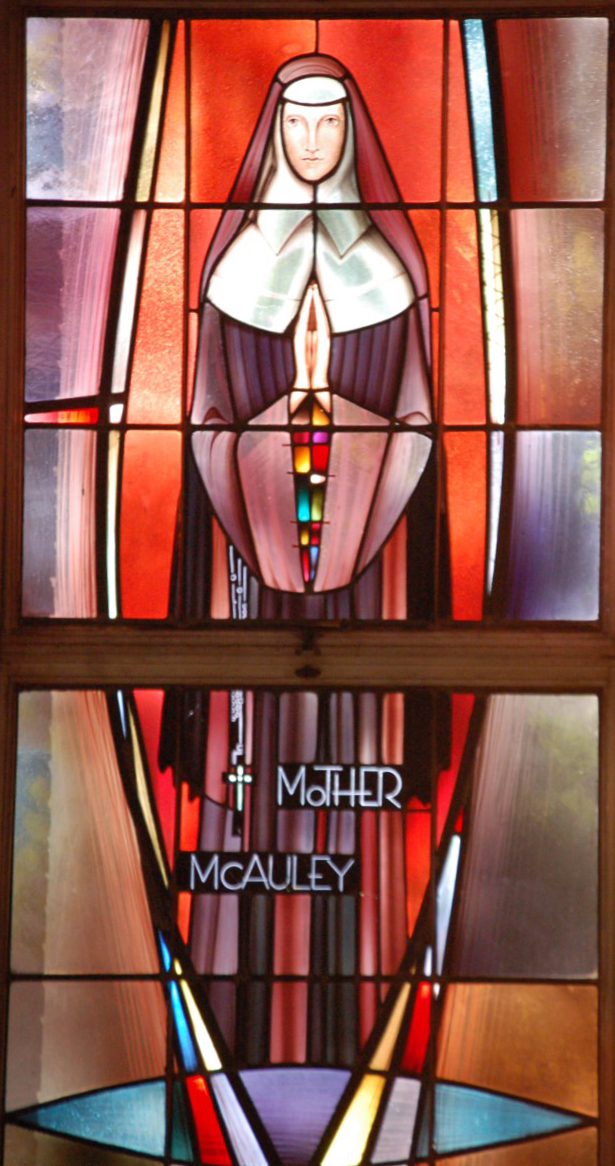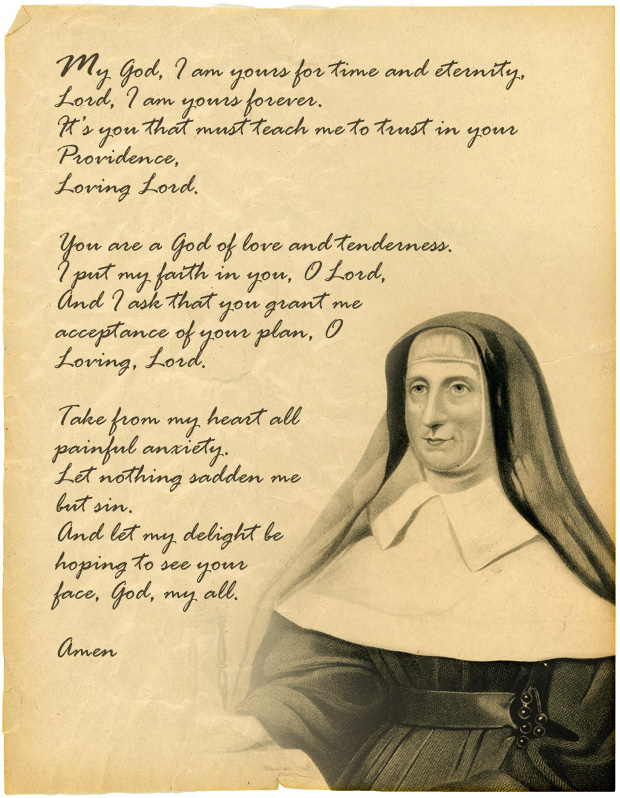Meet Catherine, part 3: Prayer
share
By Sister Marilyn Sunderman
Catherine McAuley, founder of the Sisters of Mercy, was born on September 29, 1778. Catherine built an expansive House of Mercy in heart of Dublin, Ireland, where women and children in need could come for help. At the root of her good works was a deep Christian spirituality that continues to inspire the charism of Sisters of Mercy today. Over the next several weeks, till the anniversary of Catherine’s death on November 11, we’ll be exploring several dimensions of Catherine’s spiritual life. Read Part 1 on hospitality and Part 2 on charity.

Catherine, a woman of prayer, understood that prayer is a gift from God and that one should beg God continually for this gift. During each day, Catherine spent a considerable amount of time communing with God. Often, she awoke early in the morning in order to rest in God’s provident presence before commencing the busy schedule of her day.
Catherine believed that prayer enables one to develop a spirit of service in order to carry out works of mercy. To her fellow sisters, she counseled: “We ought to give ourselves to prayer … to obtain new vigor, zeal, and fervor in the exercise of our state.”
Catherine believed that one’s “whole life should be a continual act of praise and prayer.” She taught that one should raise one’s heart to God many times during the course of a day, asking God for the grace to spend the day in God’s service.
Catherine maintained that prayer language should be simple and that prayer and ministry intertwine. She stressed that works of mercy are accomplished in and through prayer and prayer always accompanies works of mercy. Prayer impels one to engage in works of mercy and vice versa.

Meditation: Catherine believed meditation to be “a most effectual means of imprinting deeply on the mind the sublime truths of religion—of elevating the soul and inflaming the heart with the love of God.” She taught that meditation imparts peace to one’s spirit and light to one’s mind. She believed that “It … transforms the soul into a sanctuary where Jesus loves to dwell. During her own periods of meditation, Catherine loved to dwell on Jesus’ teachings and actions narrated in the New Testament.
Communal prayer: Catherine faithfully and wholeheartedly participated in communal prayer. When she was at the Baggot Street House of Mercy, Catherine joined her sisters, the lay women who resided there, and neighbors in evening prayer.
Catherine’s prayer, the Suscipe: The most profound and passionate expression of Catherine’s personal prayer is her Suscipe, in which her intimacy with God is most evident. In all humility and in deep surrender to God, Catherine prayed:
My God I am Thine for time and eternity.
Teach me to cast myself entirely
Into the arms of Thy loving providence
With the most lively, unlimited confidence
In Thy compassionate, tender pity.
Grant me, O most merciful redeemer,
That whatever you ordain or permit
May be acceptable to me.
Take from my heart all painful anxiety.
Suffer nothing to sadden me but sin.
Nothing to delight me but the hope
Of coming to the possession of you,
My God and my all,
In your everlasting Kingdom. Amen.
Favorite prayers: The Psalter of Jesus, one of Catherine’s favorite prayers, invokes Jesus’ name 150 times. Its themes—such as the need for God’s forgiving mercy, dependency on God’s help, reverence for Jesus’ person and ministry and gratitude for Jesus’ passion and death—resonated deeply with Catherine.
The seven Penitential Psalms—6, 31 (32 in the New Revised Standard Version – NRSV), 37 (NRSV 38), 50 (NRSV 51), 101 (NRSV 102) 129 (NRSV 130) and 142 (NRSV 143) were also prayers Catherine often recited. These psalms are prayers for the repentance of sin and confidence in God’s mercy.